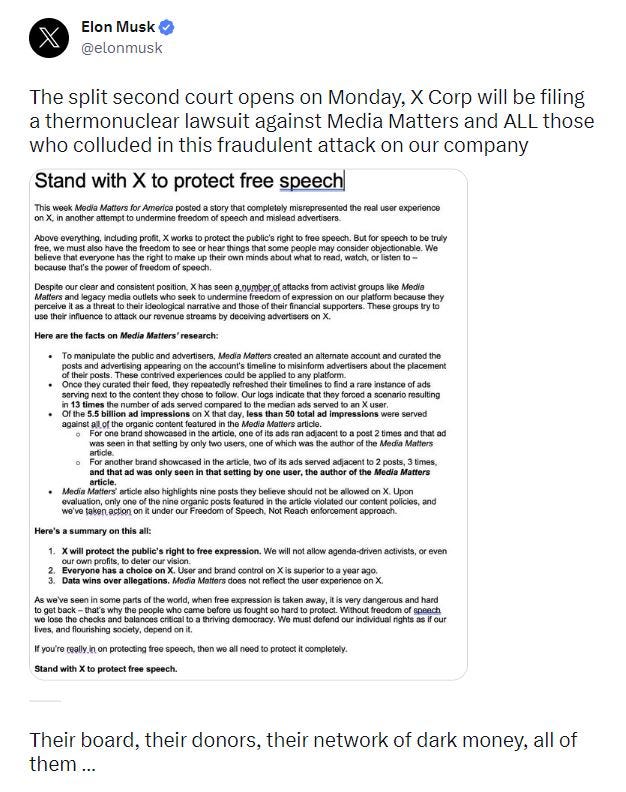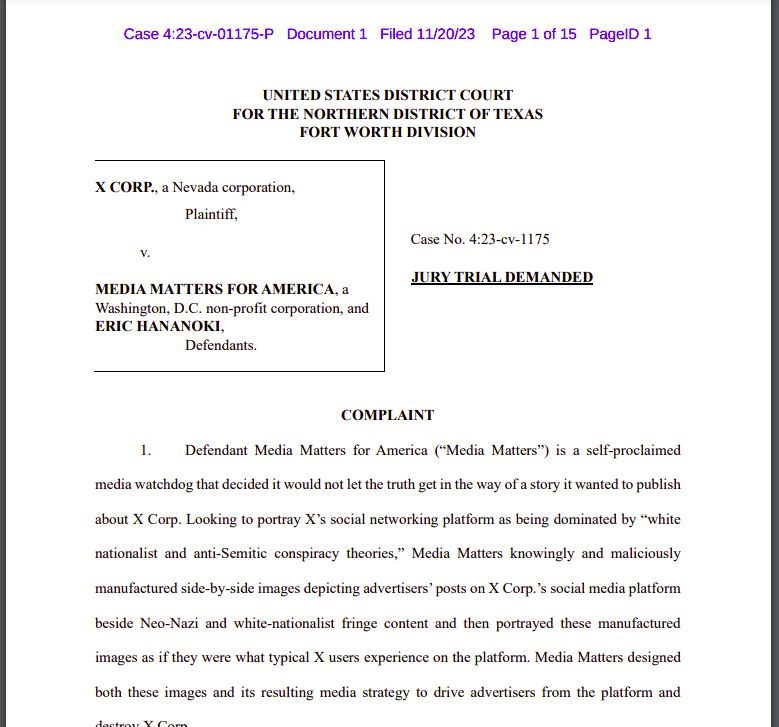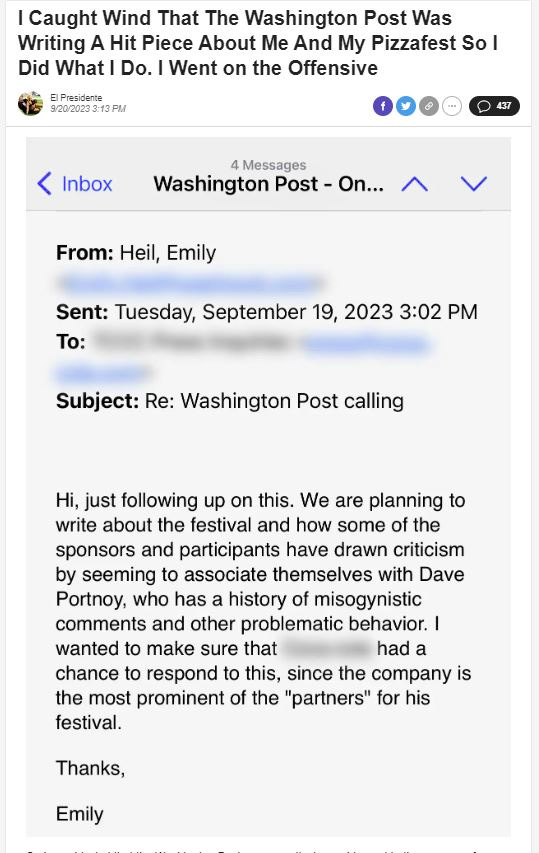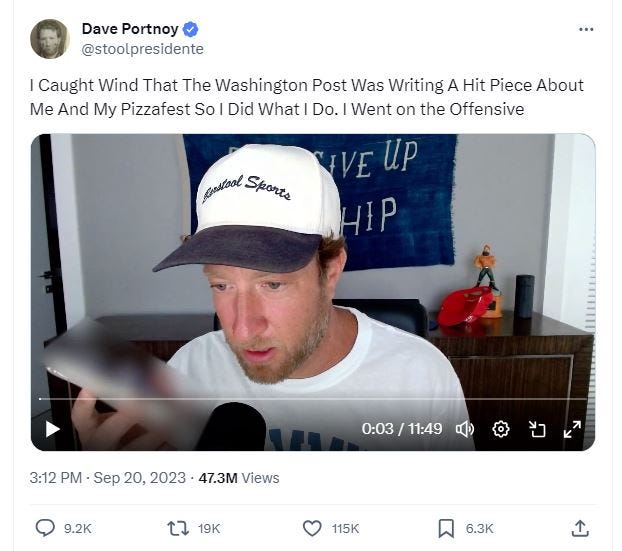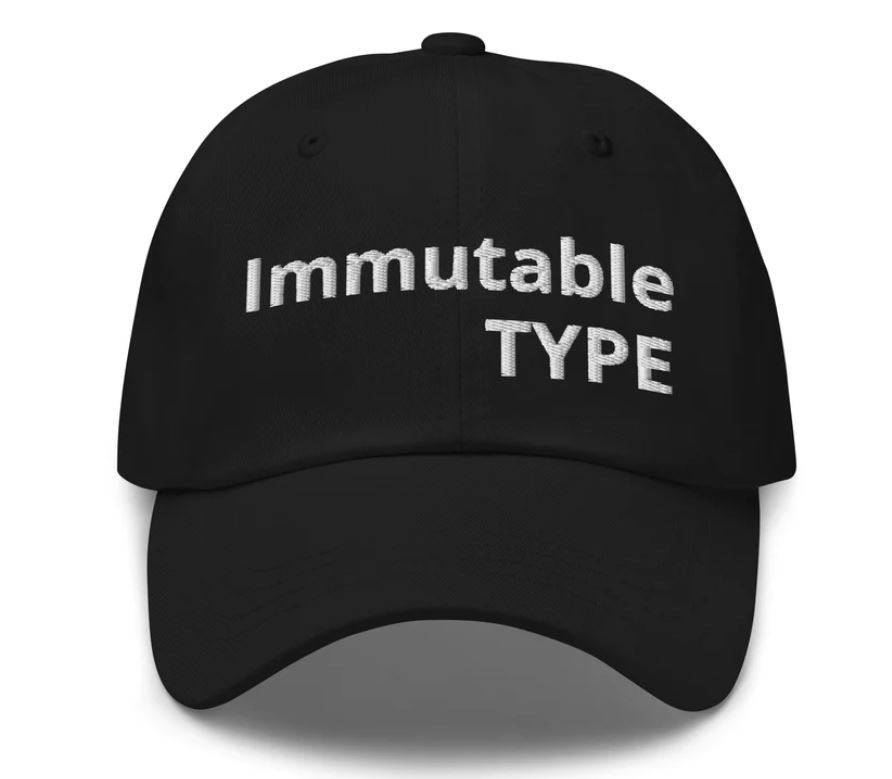Weaponizing Ads: how free speech dies when advertisers pay the bills.
Media Jackals can kill their competitors by terrifying advertisers through simple assertion and innuendo. Why blockchain will save journalism from the media.

Good Evening,
I love the idea of journalism, which, for me, is a professional practice filled with passionate and incredible people who work tirelessly to sift through the noise to find the truth.
Journalists were always warriors in my eyes as a child. It was the time after Watergate, and I believed the Fourth Estate was out there fighting for the people, always researching and reporting about important topics to help everyday people be well-informed and knowledgeable about the world around them. I found comfort in the idea of the protection journalists provided.
The world was big until the late 90s, and journalists provided views from around the globe which were unavailable otherwise. They purported to fight against government encroachment and assured that the people had power on their side. I was not alone in my views as a child, as many young people of the time viewed journalists as fearless rebels who could speak truth to power simply by writing, photographing, or publishing information on our behalf, on behalf of the people.
We were empowered to know this power and security was accessible to us all. Local journalism was the primary form of journalism at that time. Journalists were part of the community, and the incentive to create good work was rewarded with a direct impact on the social environment of the community itself. Cities and towns were better off when the local government had to answer to the media as it digested news and information for the public. That accessibility fostered actions from the community to shape their environment because they (we) could observe the results of using our voices locally.
There’s a scene in the movie, Despicable Me 2, where Gru says to Agnes, “Never get older” and that line gets me every time — I say “every time” because I’ve seen that movie 138 times so far with my 3-year-old.
It hits me hard, not only because the adult experience of having our childhood heroes and ideals ground to dust by the gristmill of life is a painful education that my daughter will also experience, but, more so, because it’s a universal experience. We all believe until we don’t.
We all establish and anchor to truths as children, only to have most of them slowly fade over time upon closer examination. Even as adults, we spend enormous personal energy examining information to discern what is true and accurate. Part of journalism’s value comes from its ability to commit its energy as a service to help us do some of this investigative work and identify trustworthy information.
That service is what we believe we are paying for when purchasing access to works of journalism, news reports, or media.
Never Get Older
The gristmill is relentless, always turning, slowly grinding.
Over the last few months, a troubling practice within the media industry has become more public. It’s the practice of media organizations attacking OTHER media businesses by attacking the advertisers of those media businesses.
While not a new practice, the effects are much more swift and damaging today within such a highly interconnected legacy media and social media environment. The industry faces a greater risk of attacks than ever before, as information travels instantly, regardless of the veracity of the content.
The impact of rapid distribution can be immediate. One of the results of such rapid impact is the ability to weaponize advertisers by threatening to shame them for placing ads within specific media brands. The simple threat is powerful because the advertiser can do little to research and verify the onslaught of information generated each day. It’s impossible to know what is true and what is fabricated at the current scale of content generation (I use the word ‘content’ intentionally). It’s easier and safer to simply pause advertising until the threat blows over.
If this subject is new to the reader and journalists were your childhood heroes as well, well, today you’re going to get a bit older, Agnes.
Ad Revenues vs. Subscriber Revenues
I did some work in an attempt to acquire a couple of print newspaper companies during 2023 (will get into that at another time), and the diligence process provided some valuable insights into the quality of revenue within the industry.
(Dirty little secret: Many media companies are just ad sales departments and marketing agencies that happen to own a newspaper, magazine portfolio, or a radio or TV station. You can’t unsee the organizational structure once you’ve seen it.)
Many of us subscribe to some form of physical periodical or website access of the periodical, or an email newsletter, or the digital edition of the physical periodical. This is a $ 40B per year business in America, so we do engage with the information format in a significant way.
The thing is, only about 25% of the revenue comes from subscriber fees. The remaining 75% of revenue is made up of advertising fees and services related to media buying and production. The “customer” therefore is the advertiser, not the subscriber.
We are led to believe the media is the watchdog of the state and the vast corporate structure running industry and finance. The media, indeed, is supposed to be there for the people, but how could it be if the people are being packaged and sold as products to advertisers? How could it be if the media companies are owned by private equity firms who have leveraged debt upon the newsrooms they have acquired? How can it be if press passes are used to portion out access to government officials to preferred media outlets?
The short answer is that it can’t be the watchdog for the people, because the people are more valuable as the product, not the customer. A subscriber is only worth $.25 of every dollar to the media company. The investments to grow media businesses will go into managing advertisers to retain those larger revenues, not into creating more high-quality journalism for subscribers.
The newsroom budgets will continue to be squeezed, while the sales teams will have expense accounts to retain advertisers.
Attack Vectors
Jeff Bezos has famously said many times,
“Your margin is my opportunity.”
I love the simplicity of this quote because it focuses competitors on their weaknesses in a survival-of-the-fittest kind of way. There was once a guy named ‘Bezos’ and he would attack your inefficiencies and greed. He’s gone now, spending his time paddle boarding in Miami, but he was effective in his time. He put legacy retailers on notice and shook them into evolving, or dying. He attacked the fat.
We tend to sugarcoat these days. We’re too damn nice, to be honest, and we’re busy helping everyone survive their follies and faulty system designs. Bezos didn’t care, and all he did was state the rules of the jungle and improve upon what wasn’t working.
Advertising revenue is the “margin” in the media industry. It’s the most glaring attack vector for media competitors and the jackals of the media fringe. Hobble the ad revenues, and you hobble the business. The subscriber revenue won’t save an industry that has come to rely on a small handful of advertiser clients who pay all the bills. The focus must be on saving the ad revenues and warding off the jackals if you find yourself being encircled.
The newsrooms, on the other hand, are expense centers, not margin generators. A big story will not create meaningfully more subscribers. A newsroom would have to consistently generate stories that triple subscriber revenue simply to match its existing ad revenue.
Doing so would make the business healthier, as many more subscribers would decrease the attack threat from the jackals. The jackals would have to attack thousands of subscribers, perhaps millions, to create the same threat to the business as attacking only a handful of advertisers. Ad revenues follow simple Pareto, so if you knock out a few of the advertisers, you can have a major impact on the target. The same impact would be extremely difficult if revenues were mainly sourced from subscribers.
But, who would want to attack the media and shame its advertisers? Who are these jackals?
The Jackals
Censorship is an ugly word with even uglier consequences. The laws of the United States account for free speech, as in the First Amendment:
As Americans, we are within our rights to say whatever we want for the most part, excluding inciting unlawful or dangerous activities or engaging in defamation. We can say the moon is made of cheese if we want. Nobody can sue you if you want to make claims that the moon is made of cheese, and the government is not able to directly prevent you from saying such things.
Free speech, however, also includes nasty and offensive speech, and/or speech that directly conflicts with the interests of others. Members of political parties, for example, are free to say, nearly, whatever they want about their foes, and the foes can do nothing legally to prevent the speech. This is the socially ugly side of free speech.
The jackals are opportunists who play in the court of public opinion where they have an advantage. They wait to hobble their targets when the targets find themselves on the defensive publicly. The jackals’ advantage is they do not appear to be interested in truth or fairness. They only exist to promote an agenda by inflicting damage when speech conflicts with their own beliefs and mission.
Many jackals refer to themselves as “watchdogs”. While they are unable to legally prevent conflicting speech from being printed or recited aloud, they can injure those who say or promote the conflicting speech by engaging in other tactics. Opportunity for jackals typically emerges when their prey has a public misstep, or perhaps is exposed for who they are, thus the “watchdog” service. In the best scenario, their watchdogging makes society better and rids the system of a bad actor(s). In the worst scenario, the jackals try to take down good actors who are vulnerable to attack, and society is worse off for this practice.
The jackals, for their part, seem to know exactly who and what they are and make little effort to hide their intent. They appear to be very self-aware that they exist to organize an end result. It’s ok to take down anyone who is in conflict with their mission, whether a good or bad actor. “God knows his own” in the end, so just prevent everyone from engaging in narratives contrary to the mission, and the ‘good’ will be saved in the final sorting.
Now, the following is choppy water, and the characterization of the following entities as jackals is my opinion. You see, I do possess free speech, but speech also may come under attack in many forms.
I am providing two examples for consideration, though there are many. I’m intentionally choosing an example from each side of the aisle, and while I am providing these two as examples, I am not accusing either of wrongdoing.
Conservative: Media Research Center
Liberal: Media Matters for America
Each group refers to itself as a “media watchdog group” and each is structured as a non-profit organization. I admit, a “non-profit watchdog group” sounds great on the surface, but it’s when we dive deeper that we find their actual operating history to be questionable and concerning.
Here is a link to the Wikipedia page of each, as this is a good starting point to research the range of their work to judge for yourself. If the media is the fourth estate, then these organizations claim to be the watchers of the fourth estate for the benefit of their constituents. Seems like a good and fair idea, but follow the money »
Sounds Like a Conspiracy Theo…
And just like that, a “watchdog” pulled on the wrong chain and found itself exposed. The above post summarizes allegations from Musk that the non-profit, Media Matters for America, manipulated X.com’s (formerly Twitter) user interface to create the appearance of an unsafe online environment on X.com for brand advertisers.
The (ahem) article published by Media Matters for America isn’t exactly a deep dive at ~350 words, but it makes some heavy accusations. Here is the entire piece for the reader here «<Link to Article».
The result of this article, allegedly (I have to say ‘allegedly’ there), is that large advertisers pulled advertising budgets from X.com and created a material risk to the viability of the platform.
The list of advertisers who have reportedly pulled their advertising budgets from the platform has recently been updated to include Walmart, which joins Disney, Sony, and Apple, per this article by Forbes. «Link here»
X.com followed through on Musk’s post and filed a defamation suit against Media Matters, as well as the author of the article, Erik Hananoki, in Texas on 11/20/2023. Here is a link to the filing:
Musk has been under heavy media fire since buying X.com and exposing the internal workings of its moderation (censorship) practices in collaboration with three-letter organizations. This story is well covered in the Twitter Files.
NOTE: This post isn’t about the Twitter Files, but I recommend its content to anyone with a fleeting interest in media integrity, government censorship, content moderation, the FBI, free speech, and general palace intrigue. Begin with the Wikipedia repository as a starting point and fan out to various rabbit holes from there: «The Twitter Files link »
Beyond his exposure to collusion between government agencies and the former Twitter management, he has stepped into it with his posting practices. He opened the doors to critique and attack by being too free with his comments on his own platform. These missteps are exactly the events the jackals use to frame and attack, and when it happens to lesser foes, they typically win their cases and create pressures that force the target to cave and restrain their speech.
With Musk, however, the watchdog has put itself in a corner; not because he’s the richest person in the world, but because his energy to fight seems to come from doing what is right for mankind. This is going to be an important legal case because it will test the limits of free speech for both parties, and it will expose the behaviors underlying media watchdogs and special interest groups.
The complaint is seeking a public trial by jury. If democracy dies in darkness, then maybe this trial will be the big bright light we all need these days.
Speaking of The Washington Post
Gosh, we really can’t make this up, but the official slogan of The Washington Post is, indeed, Democracy Dies in Darkness.
If Musk is a super rich guy who must fend off the jackals, then Dave Portnoy is just a very rich guy who, also, must fend off the jackals.
Before I begin here, I have to say, I grew up with incredible admiration for Katharine Graham and a reverence for The Washington Post. I was very happy when Jeff Bezos purchased the paper because I believed it would be in great hands and continue as a beacon for journalism. Enter Emily Heil, a reporter for The Washington Post. (Sigh).
A long story short, Portnoy got ahold of this email from one of his sponsors, as the screenshot from the Barstool Sports blog:
Simply reading the above was, if I’m being truly honest, a bit heartbreaking. I’d love to say I’m not this nostalgic for integrity, but I really am. As mentioned earlier, I believe journalists are warriors and newspapers are the pinnacle of integrity, but, damn if your heroes don’t let you down.
This is another instance where the jackals got more than they bargained for and were exposed. Here we have a REPORTER calling sponsors and creating fear and uncertainty for sponsoring the event of a media brand owned by Dave Portnoy. What tiny food vendor or beverage brand wants to be included in an article in The Washington Post that asserts they may be painted as pro misogyny for participating in the event of Barstool Sports?
To his credit, Portnoy called Heil and recorded the conversation. On this call, Heil admits to some pretty sad incentives for her approach, which just continued to grind my childhood truths to dust.
I recommend listening to the entire call and putting aside any feelings one may have of Portnoy as a personality. He has his own style, and he is clearly a guy with integrity and expectations from the press.
With both, Portnoy and Musk, we have two examples of media representatives attacking the advertising revenues of a media platform (X.com) and a publisher (Barstool Sports) simply to pursue an agenda and create pressure (allegedly).
Why this is important is that these two examples play out with the prey turning the tables on the jackals who were attacking their margins. Each exchange improved the strength of democracy in its own way because free speech protects everyone, not just the people who have the resolve to fight entities and people who seek to constrain speech for their motives.
But, it also provides an example of the weakness inherent in the media business as outlined above: ad revenues are weak revenues for news and media companies and result in an attack surface for those who want to pressure the businesses to change their speech practices.
So, What to Do?
This is usually the point in a post where the story ends and the reader is left with a sense of indignation and resentment, muttering “Someone should do something!”
Well, yeah, that’s the point. We should, let’s go!
The idea that ad revenues are weaponized to influence the media’s speech is not disputable. Bad people, as well as good people with bad incentives, are going to attack competitors and foes to try and ruin their access to revenues required to fund news and media businesses.
The editorial will continue to suffer, communities will be poorly informed, and society will erode until it is empty of purpose. That is what’s at stake, purposeful communities.
Unless, of course, we just f’ing do something about it.
But, like what?
Write more laws? Nope.
Cancel our subscriptions? Nope.
Send letters to the editors? Nah.
Go jackal hunting? Too many of them.
How about this: ImmutableType
Get rid of the ads, lower the cost of subscriptions, remove the paywalls, publish journalism on chain, create technology for communities to fund works in their interests, curate and reward the most valuable works, water the news deserts and give rise to the voices who have been excluded from shaping the conversations of local abundance.
Seems weird, but it’s worth a shot. What we’re doing now isn’t working, and the best journalists and publishers are struggling every day to find a new way forward.
We’re going to work together to make this happen.
Follow along. This is happening. Please share with friends and colleagues. Refer local journalists, writers, and photographers. Believe in journalism and watch these warriors come to life when freed from the constraints of the jackals.
Thank you, thank you, thank you.
Connect
Collect Our Bitcoin Ordinals
Gamma.io: ImmutableType Ordinals Drop: Satoshi 369, Chancellor on Brink
Rep Some Merch
Hats build software! I recommend the Dad Hat and the branded tee for starters.



